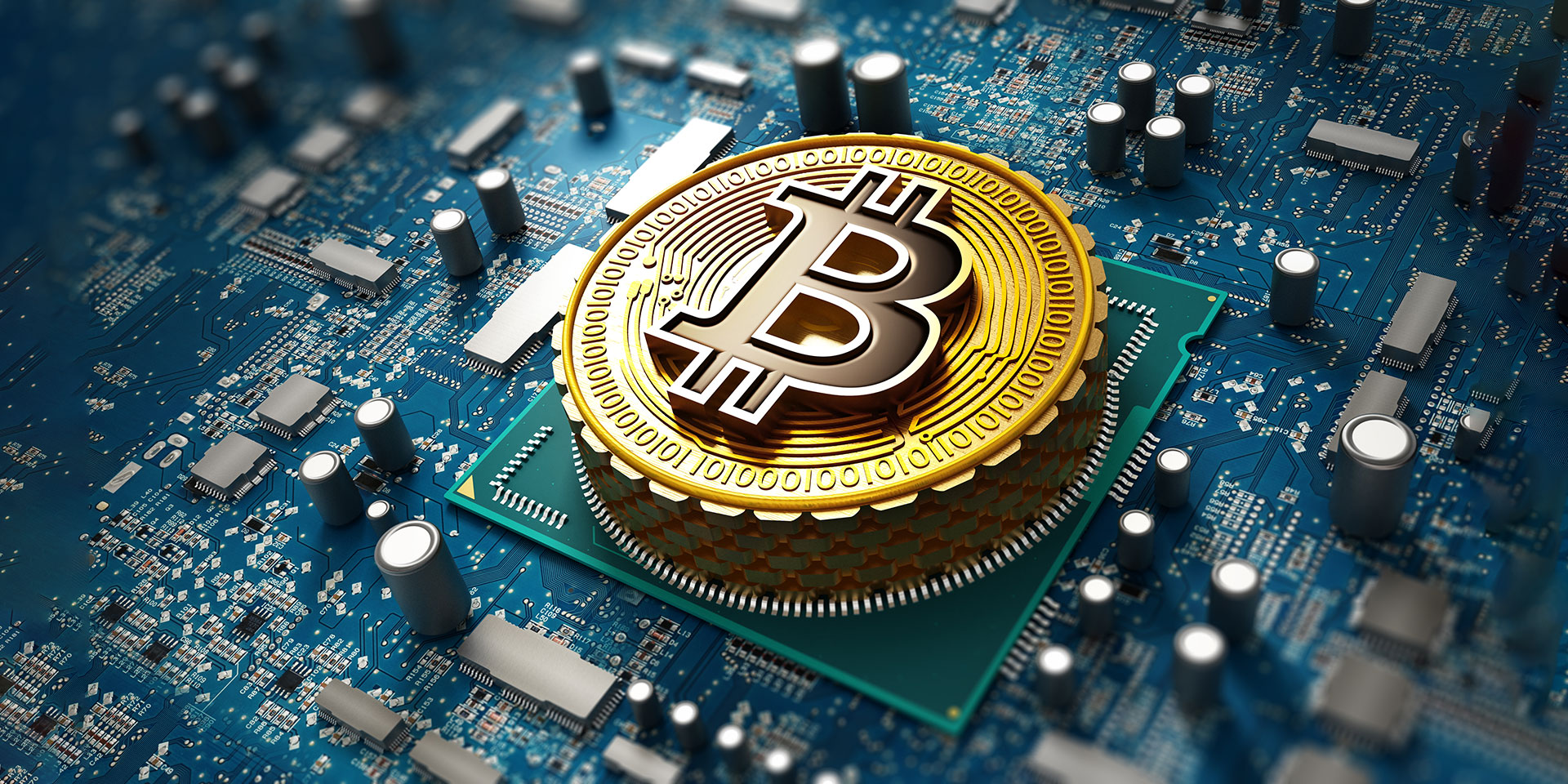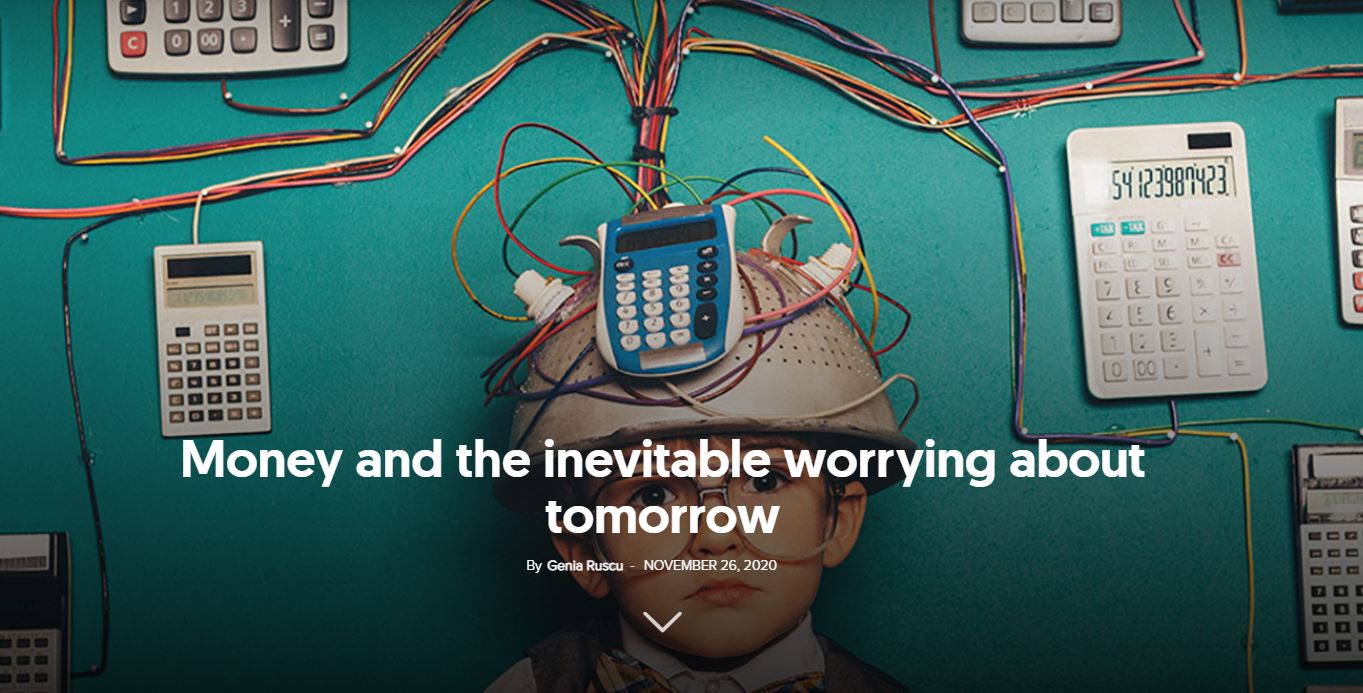The world of cryptocurrencies is a hyper-competitive one, where the rarest currency seems to be, in fact, quality information. Therefore, given the opportunity to talk to an investor with four years of experience in crypto trading, I considered it a good moment to check the opinions that may inform the decision to invest in cryptocurrencies.
There is an abundance of information about cryptocurrencies online. From news such as the “mysterious death of Mircea Popescu”, the only man who allegedly owned a million Bitcoins, to the decision of the Chinese government to outlaw crypto transactions, or news about the environmental impact of Bitcoin, the average person can easily see that, although they know a lot about Bitcoin, they haven’t really understood much about what this currency entails, why it seems to have such dramatic implications, and why so many young people are magnetically attracted to the “mirage” of this virtual gold.
What are cryptocurrencies?
Cryptocurrencies are a virtual or digital currency, secured through cryptography against counterfeiting or double-spending. They were invented as an alternative currency, which does not depend on central banks or administrators, but can circulate independently within a peer-to-peer network.
Basically, a cryptocurrency is a monetary convention supported not by a government or bank, but by electronic infrastructure. The security of its transfers is certified by “miners” which are high-powered computers that secure the network and process every transaction by solving complex computational math problems.
A “miner” constantly groups the new transactions into “blocks” of information, which are then transmitted over the network and verified by receiving nodes. Each block of information is linked to the previously generated block, hence the name blockchain. The blockchain is like a ledger, only decentralized, not managed by any particular entity, but supported by the network of “miners” who contribute to its constant updating.
What is a “miner”?
The “miners” are so named because, due to their computational work, the network rewards them with newly generated coins. It is important to note that the “miner” must meet two conditions to be paid for its work: to reach the 1MB threshold of verified transactions (the equivalent of a block) and to be the first/fastest verifier (proof of work).
Like gold, cryptocurrencies do not have a value in themselves, but a purely artificial value. That’s why well-known investor Warren Buffett said in 2014 that Bitcoin is “a mirage, basically”.
The miner’s fee is practically “minted” coins, they are not the equivalent of anything else outside the computer system, and their value is set similarly to the value of gold (by regulating the market). Like gold, cryptocurrencies do not have a value in themselves, but a purely artificial value. That’s why well-known investor Warren Buffett said in 2014 that Bitcoin is “a mirage, basically.” “It’s a very effective way of transmitting money… A check is a way of transmitting money too. Are checks worth a whole lot of money? Just because they can transmit money?… The idea that it has some huge intrinsic value is just a joke in my view,” he added.
Buffett maintained his opinion in 2020 when he said that “cryptocurrencies basically have no value and they don’t produce anything. They don’t reproduce, they can’t mail you a check, they can’t do anything, and what you hope is that somebody else comes along and pays you more money for them later on, but then that person’s got the problem. In terms of value: zero.”
In May 2021, the investor already seemed tired of receiving requests to explain his anti-cryptocurrency position, joking that he will anger Bitcoin supporters if he criticizes the currency again. Yet, the comparison with gold is maintained in the current frenzy regarding cryptocurrency investments when they are deemed a new “gold rush.”
What caused the virtual gold rush?
A Bitcoin (BTC) is worth $33,820 at the time of writing, and the market capitalization (i.e. the value of all BTC coins on the market) is $651 billion. Just a year ago, the Bitcoin market capitalization was $208.9 billion.
If this increase seems spectacular, we’ll balance it by noting that, in March 2021, the market cap of Bitcoin was 1.1 trillion dollars, so, in just a few months, traders have witnessed its price plummet. In addition to Bitcoin, there are more than 4,000 alternative cryptocurrencies, known as altcoins (among the most popular being alts such as Ethereum and Litecoin), with an estimated market capitalization of almost 809 billion dollars.
Many of those who boarded the cryptocurrency train, either as miners or as traders, did so because they were drawn by the prospect of making big gains in a short time. These gains are generated by the exponential increase in the coins’ value and the resulting difference between the purchase price and the current price. Optimists are betting on steady growth, although many analysts warn that no one and nothing can guarantee the upward trend, just as no one can anticipate a decline in the value of these coins in the future.
In addition to the profit potential, The World Financial Review identifies no less than 6 other reasons why cryptocurrencies have become so popular: very low transaction fees, lack of association with governments (hence the currency’s immunity to inflation fluctuations), simplifying the use of cryptocurrencies due to the increasing number of companies that accept cryptocurrencies, security (identity protection of the parties involved in the transaction), accessibility, and the belief that cryptocurrencies are the currency of the future.
Conversation with a cryptocurrency trader
The trader I talked to is a programmer and is a cryptocurrency enthusiast. They started the investment out of curiosity at first, buying Bitcoin with money that they could easily do without, through circumstances that did not involve too much self-training. Later on, the growing earnings even convinced them to quit their 8-hour job and support their income predominantly from cryptocurrency trading. Such an approach, however, required a little more time and effort. They read technical analysis books and stayed up to date on crypto Twitter, where much more experienced investors share their market observations. Some have obtained an image as a guru, but even these apparent sages cannot prevent newcomers from having a hard time understanding what is written there.
“Some of the bigger Twitter accounts”, the trader tells me, “are shilling coins, influencing the naïve to buy and pump the price. They sell the top and get rich, while the naïve are left with worthless coins. Which is like a pump and dump.”
In the jargon of cryptocurrency traders, “shilling” means creating popularity for an obscure cryptocurrency, through seemingly well-intentioned propaganda, so as to create demand for that currency. A “shill” is a person who usually owns the currency they are promoting, but they can also be paid by a third party to promote that currency.
Likewise, “pump and dump” is a deliberate scheme to artificially increase the attractiveness (read “price”) of a coin, except that in the case of a pump and dump, the action does not necessarily belong to a single individual, but to a group of people that accumulate a coin over time, then disseminate false or misleading information about it in order to make investors and traders rush into buying, for fear of missing out, at a high price. Once the price is pumped, the scammers sell their tokens, causing the price to crash.
“The examples of market manipulation are countless. For instance, in 2017/2018, JP Morgan said that if they catch any of their traders trading Bitcoin, they will be fired. The price of Bitcoin has dropped by about 20%. Guess who bought exactly after that? You can take only one guess.”
In September 2017, JP Morgan CEO Jamie Dimon bluntly said about cryptocurrencies that they are “a scam” and that “it’s just not a real thing, eventually it will be closed.” He even said that he would “fire in a second” any JP Morgan trader who traded Bitcoin, for two reasons: “It’s against our rules and they are stupid.”
On the day the CEO made this statement, the price of Bitcoin fell two percent. One week later, the price of Bitcoin had already fallen 24%. In the same week, Florian Schweitzer, managing partner at a London company active on the Bitcoin market, complained to the Swedish authorities that JP Morgan is one of the most active Bitcoin buyers on Bitcoin XBT, an exchange listed on Nasdaq Nordin in Stockholm. Moreover, in February 2021, JP Morgan became the first global bank with its own network to facilitate blockchain payments, even starting its own currency: JPM Coin.
“Okay, but isn’t that what you do, too? Sell something that only has value because many say it has value, and is it possible that, at some point, those below you will be left with only the coins?”
“I don’t think it’s worthless.”
“What is the value of Bitcoin?”
“The trust that people have in it.”
The dark side of cryptocurrencies
The promise of anonymity has made cryptocurrencies the paradise of illegal activities. On crypto networks, far from the watchful eyes of central authorities, fees for live meat trafficking are traded, drugs, weapons, and other illegal products are bought and sold, money is laundered and taxes are evaded. This is a rather high price to pay for the benefits, such as protecting the anonymity of dissidents and activists living in countries with oppressive political regimes who are often supported by crypto-enthusiasts.
According to a study conducted by researchers at Oxford 3 years ago, about a quarter of all users (25%), and almost half of all Bitcoin transactions (44%) are associated with illegal activities. At the time of the research, it was estimated that 24 million participants in the Bitcoin market used the currency for illegal purposes and that their transactions, valued at about $72 billion, consolidated their assets worth about $8 billion. For context, the researchers compared this market to the total illicit drug market in the US (estimated at $100 billion annually) and Europe (estimated at $24 billion annually).
“What’s the value of Bitcoin?”
“The trust that people have in it.”
However, the reasons for criticism of cryptocurrencies are not limited to covering illegal networks. Another downside of cryptocurrencies is that although they are immune to inflation, they are very vulnerable to volatility. Because cryptocurrency prices are based on supply and demand, the exchange rate of one cryptocurrency in another currency can fluctuate extremely highly. Therefore, many economic analysts consider cryptocurrency trading as speculation, or even gambling.
Also, although transactions are transparent and secured by the blockchain, other links in the crypto ecosystem are not so well secured. Crypto exchanges and wallets are much more vulnerable to cyber attacks. And these can result, as has already happened, in losses of millions of dollars.
Mining is very centralized, with the top four miners in Bitcoin and the top three miners in Ethereum controlling more than 50% of the hash rate.
Decentralization, the frequently invoked ideology behind the creation of cryptocurrencies,remains an ideal that recedes more and more as time passes, because in practice, the blockchain is controlled by a handful of “miners” who have the computational ability to do proof of work faster than everyone else. As a Cornell University study showed, both in the case of Bitcoin and in the case of Ethereum, “mining is very centralized, with the top four miners in Bitcoin and the top three miners in Ethereum controlling more than 50% of the hash rate” (the transaction validation rate). Therefore, the study concludes, the “entire blockchain for both systems is determined by fewer than 20 mining entities.”
The icing on the cake is the environmental impact of cryptocurrencies. After Cambridge University calculated, based on theoretical models, that the operation of Bitcoin consumes high amounts of electricity, Elon Musk announced on Twitter that Tesla will no longer accept Bitcoin payments, because “Bitcoin mining affects the environment.” The cryptocurrency market lost $365 billion after the announcement.
Should you invest in Bitcoin or other cryptocurrencies?
The decision of whether or not to trade in Bitcoin or other cryptocurrencies is, of course, a personal one. But an informed pro-investment decision must first be able to answer a few difficult questions in the affirmative. Is it moral to maintain a system that, in turn, facilitates the spread of criminal networks? Can one afford to lose all the money one has invested in cryptocurrencies, which are affected by the unpredictable volatility of the market? Will one own up to the fact that one can only make a profit because of the pyramidal nature of the network (to sell something that produces nothing, at a higher price than the one I bought it at, to people who, in turn, hope to be able to do the same as me)?
Read also:
The promise of quick gains generates many cynical or overly optimistic answers to these questions. Compared to the prospect of gaining financial independence through small, long-term investments, the vision of quick accumulation of wealth through crypto may seem more attractive to some. From another perspective, however, the risks and costs associated with this way of getting rich make it, at best, a debatable method of wealth creation.
Alina Kartman is a senior editor at Signs of the Times Romania and ST Network.




















